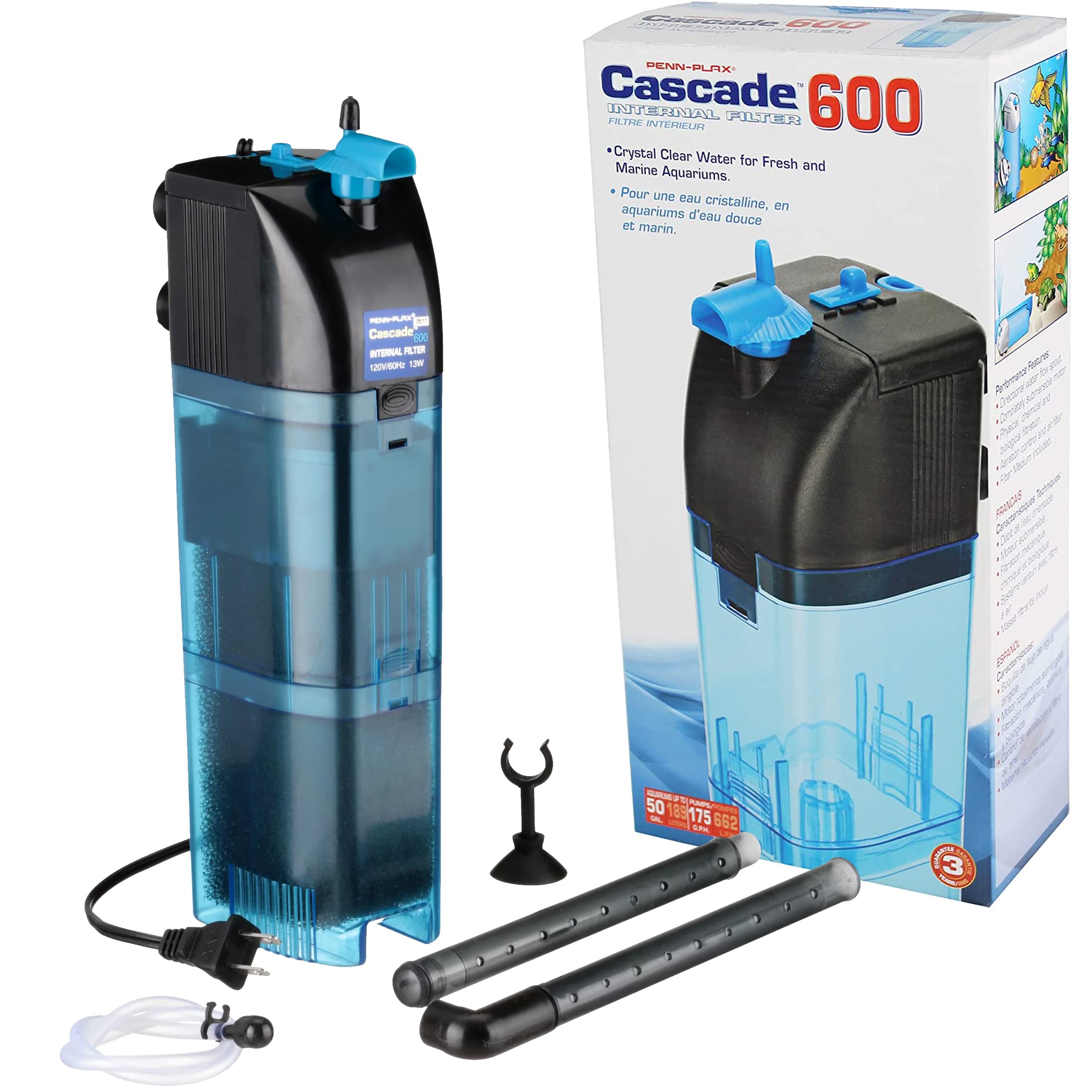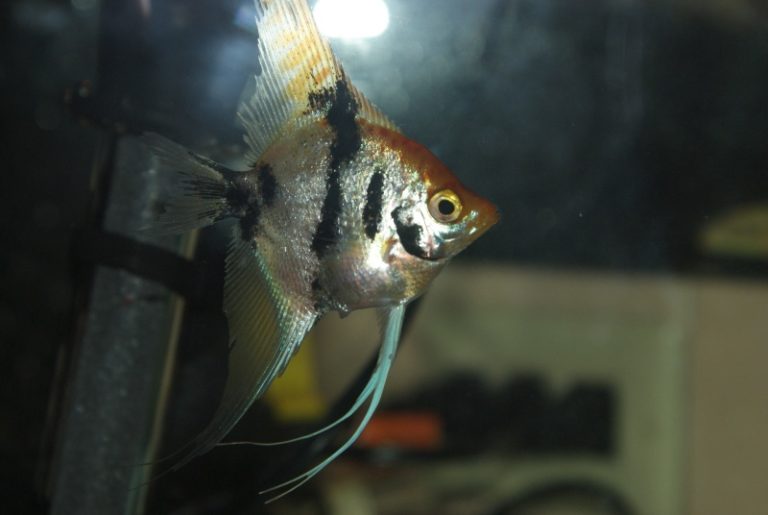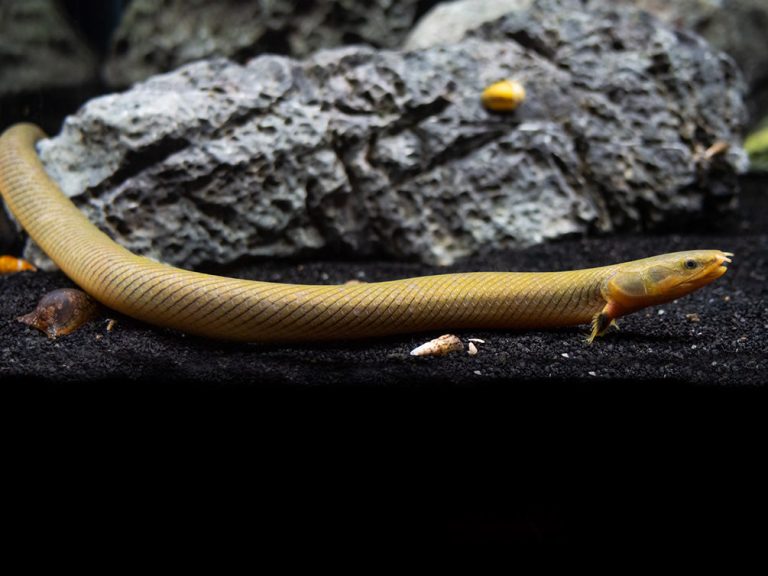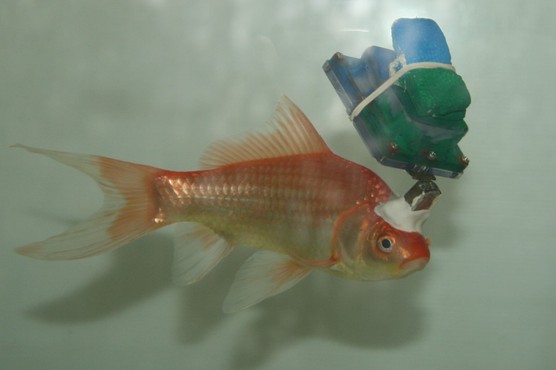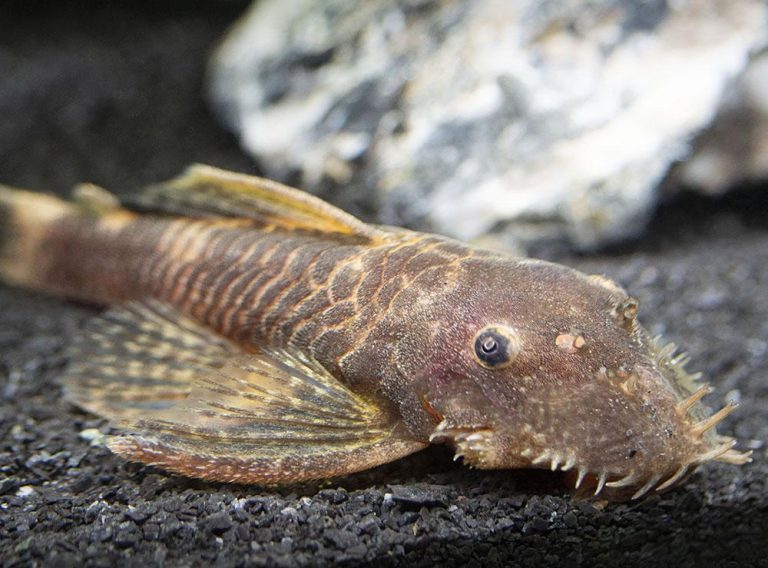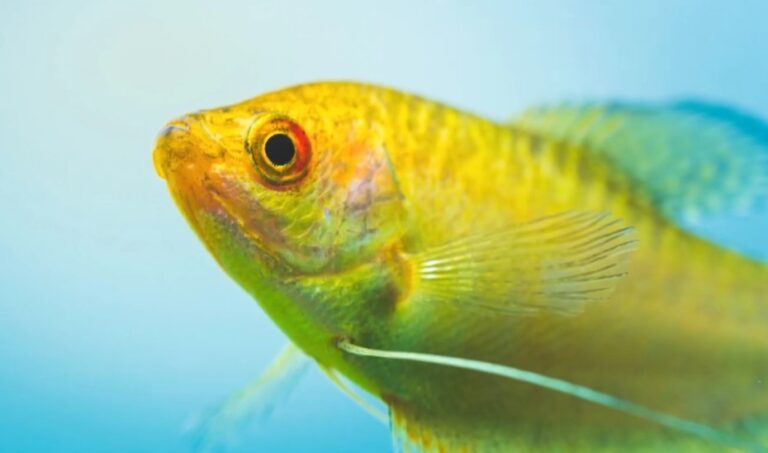Enhance Your Saltwater Aquarium with Hob Filters: A Game-Changer!
Yes, a saltwater aquarium can use hob filters. Here’s why: saltwater aquariums require effective filtration systems, and hob filters, also known as hang-on-back filters, are commonly used in these setups.
Hob filters are designed to remove impurities, such as excess waste, ammonia, and debris, from the water. They provide mechanical, chemical, and biological filtration, ensuring optimal water quality for the marine life in the tank. These filters are easy to install, operate, and maintain, making them a popular choice for saltwater aquarium enthusiasts.
Moreover, hob filters offer adjustable flow rates and customizable filter media options to suit the specific requirements of different saltwater aquarium setups. With their efficiency and versatility, hob filters are an excellent choice for maintaining a healthy and thriving saltwater aquarium.
Credit: www.reddit.com
Benefits Of Using Hob Filters For Your Saltwater Aquarium
Can A Saltwater Aquarium Use Hob Filters?
If you’re a saltwater aquarium enthusiast, you may be wondering if using a hob (hang-on-back) filter is a suitable option for your tank. Hob filters are popular for their simplicity and efficiency in freshwater aquariums, but can they be beneficial for saltwater setups as well?
We will explore the benefits of using hob filters for your saltwater aquarium. Let’s dive in!
Improved Water Quality
Maintaining clean and pristine water quality is crucial for the health and well-being of your saltwater creatures. Hob filters play a significant role in achieving this goal. Here are some key advantages of using hob filters to improve water quality in your saltwater tank:
- Efficient mechanical filtration: Hob filters are equipped with mechanical filter media that effectively removes debris, uneaten food, and other particulate matter from the aquarium water. This helps prevent the accumulation of waste, ultimately leading to cleaner water.
- Chemical filtration capabilities: Some hob filters come with compartments to accommodate chemical filter media like activated carbon or phosphate removers. These additions can help remove impurities and pollutants from the water, enhancing its quality even further.
- Biological filtration support: Hob filters can also facilitate the growth of beneficial bacteria, which aids in biological filtration. These bacteria help break down harmful substances like ammonia and nitrite, ensuring a stable and healthy environment for your saltwater inhabitants.
Enhanced Filtration Efficiency
One of the notable advantages of hob filters is their enhanced filtration efficiency compared to other filtration systems. Here’s how they excel in this aspect:
- Increased water turnover rate: Hob filters provide excellent water movement and turnover. This promotes better oxygenation and helps distribute heat evenly throughout the tank. Additionally, increased water flow aids in waste removal and prevents dead spots where debris can accumulate.
- Easy maintenance: Hob filters are designed for easy access and maintenance. The filter cartridges or media can be easily replaced, rinsed, or cleaned without disturbing the tank’s inhabitants. This ensures hassle-free cleaning that doesn’t disrupt the delicate balance of your saltwater ecosystem.
Reducing Algae Growth
Excessive algae growth is a common concern in saltwater aquariums. Hob filters can help mitigate this issue by:
- Removing nutrients: Algae thrive in water with excess nutrients like nitrates and phosphates. Hob filters, especially those with chemical filtration options, can help remove these nutrients, reducing the availability for algae growth.
- Enhancing water circulation: Proper water circulation created by hob filters inhibits the settling of algae spores and prevents stagnant areas where algae can thrive. The consistent water movement helps maintain a balanced and healthy ecosystem.
Using hob filters in your saltwater aquarium provides numerous benefits, including improved water quality, enhanced filtration efficiency, and reduced algae growth. Consider incorporating a hob filter in your saltwater setup to enjoy these advantages and provide the best possible environment for your aquatic pets.
Understanding How Hob Filters Work
Can A Saltwater Aquarium Use Hob Filters
What Does Hob Stand For?
Hob stands for ‘hang on back’, as these filters are designed to be attached to the back of the aquarium. They are also commonly referred to as ‘back-mounted’ filters. A hob filter is a type of aquarium filter that provides effective water filtration by removing impurities and maintaining a healthy aquatic environment for the fish and other inhabitants of the tank.
How Does Hob Filter Work?
Hob filters work by drawing water from the aquarium using an intake tube. The water is then passed through various filter media, such as mechanical, chemical, and biological filtration components, to remove debris, toxins, and waste products. The filtered water is then returned to the aquarium through a spillway or a waterfall-like feature, creating oxygenation and promoting water circulation.
Hob filters are relatively easy to install and maintain, making them a popular choice among aquarium enthusiasts.
Here are some key points about how hob filters work:
- The intake tube of the hob filter draws water from the aquarium, creating a continuous flow.
- The water passes through mechanical filtration, where larger particles and debris are trapped in a sponge or filter floss.
- Chemical filtration component, often using activated carbon, removes dissolved impurities, odors, and discoloration from the water.
- Biological filtration occurs in a separate media, such as ceramic rings or bio-balls, where beneficial bacteria break down harmful ammonia and nitrite into less toxic nitrate.
- The filtered water is then returned to the aquarium, promoting oxygenation and maintaining a clean and healthy environment for the aquatic inhabitants.
The Importance Of A Properly Sized Hob Filter
Choosing a properly sized hob filter is crucial for the overall health and well-being of your saltwater aquarium. Here are some reasons why having the correct size of hob filter is essential:
- Efficient filtration: A properly sized hob filter ensures that the water in your aquarium is adequately filtered, removing impurities and maintaining water quality. An undersized filter may not be able to handle the biological load of the tank, leading to poor water conditions and potential harm to the inhabitants.
- Oxygenation and water circulation: Hob filters play a crucial role in oxygenating the water and promoting water circulation in the aquarium. Proper oxygen levels are vital for the well-being of fish and other organisms, while water circulation helps prevent stagnant areas and temperature stratification.
- Waste removal: Hob filters are responsible for removing waste products, uneaten food, and debris from the aquarium. A filter that is too small for your tank may result in inadequate waste removal, leading to increased ammonia levels and poor water quality.
- Biological stability: Hob filters provide a platform for beneficial bacteria to establish and maintain a stable nitrogen cycle in the aquarium. Having a properly sized hob filter ensures that there is enough surface area for these bacteria to colonize and break down harmful substances.
- Noise and aesthetic considerations: By choosing a hob filter that is suitable for your tank size, you can avoid excessive noise and ensure proper fitting without obstructing the view of your aquarium.
Understanding how hob filters work is essential for maintaining a saltwater aquarium’s health and stability. By choosing the right size and understanding their functionality, hobbyists can create a thriving aquatic environment for their fish and other marine life.
Choosing The Right Hob Filter For Your Saltwater Aquarium
Are you a saltwater aquarium enthusiast looking to set up a high-quality filtration system? One option to consider is a hang-on-back (hob) filter. These filters are popular for their ease of use and effectiveness in maintaining water quality. If you’re wondering whether a saltwater aquarium can use hob filters, the answer is yes! In fact, choosing the right hob filter for your saltwater aquarium can make a significant difference in the well-being of your aquatic life.
Factors To Consider When Selecting A Hob Filter
When it comes to selecting a hob filter for your saltwater aquarium, there are several key factors to consider. Let’s take a look at some of the most important considerations:
- Filtration capacity: Determining the size and volume of your aquarium will help you choose a hob filter with the appropriate filtration capacity. It’s crucial to ensure that the filter can effectively handle the water volume and provide adequate filtration to keep your aquarium clean and healthy.
- Maintenance requirements: Different hob filters have varying maintenance needs. Some models may require more frequent cleaning or replacement of filter media. Considering your available time and dedication to regular maintenance will help you find a filter that fits your schedule.
- Media choices: Hob filters typically offer options for different types of filter media. This allows you to customize the filtration process based on your specific aquarium needs, such as biological, chemical, or mechanical filtration. Understanding the different media options available will help you choose the most suitable filter for your saltwater aquarium.
Finding The Perfect Fit For Your Aquarium Size
One crucial aspect of selecting a hob filter for your saltwater aquarium is choosing the right size. Here are a few pointers to guide you in finding the perfect fit:
- Matching flow rate: The flow rate of the hob filter should be appropriate for the size of your aquarium. A filter with a higher flow rate can create excessive water movement, which may stress certain delicate marine species. On the other hand, a filter with a low flow rate may not provide sufficient circulation and filtration for larger tanks.
- Consider tank capacity: Take into account the volume of your saltwater aquarium when choosing a hob filter. Manufacturers often specify the suitable tank sizes for their filters, enabling you to make an informed decision. A filter designed for smaller aquariums may not be efficient in maintaining the water quality of a larger tank.
Advanced Features To Look For In A Hob Filter
While basic filtration is essential, some hob filters offer advanced features that can enhance the performance and convenience of your saltwater aquarium setup. Consider the following features when choosing a hob filter:
- Adjustable flow rate: Having the ability to adjust the flow rate allows you to accommodate the needs of different organisms in your aquarium. Certain marine species may thrive better with slower or faster water movement, and an adjustable flow rate can provide the necessary flexibility.
- Built-in protein skimmer: Protein skimming is an effective method of removing organic waste and reducing nutrients in a saltwater aquarium. Some hob filters come with a built-in protein skimmer, saving you the trouble of purchasing and installing a separate unit.
- Quiet operation: Noise can be a significant concern, especially if your saltwater aquarium is located in a living space. Look for hob filters that are designed for quiet operation to minimize any disturbances.
Hob filters can indeed be used in saltwater aquariums, offering effective filtration and convenience. By considering factors such as filtration capacity, maintenance requirements, and media choices, as well as finding the perfect fit for your aquarium size and exploring advanced features, you will be well on your way to selecting the right hob filter for your saltwater aquarium.
Happy filtering!
Setting Up And Maintaining Your Hob Filter
Steps To Install A Hob Filter In Your Saltwater Aquarium
Installing a hob filter for your saltwater aquarium is a crucial step in creating a healthy and clean environment for your fish and other aquatic life. Here are the steps you need to follow to successfully set up a hob filter:
- Start by choosing the right hob filter for your aquarium size. Ensure that the hob filter is suitable for a saltwater aquarium and has the capacity to handle the volume of water in your tank.
- Place the hob filter on the back of your aquarium, ensuring that it is securely attached to the tank’s rim. The water intake should be submerged in the tank, while the water outlet should be positioned above the water level.
- Connect the hob filter to a power source and turn it on. Allow the filter to run for a few minutes to ensure that it is working properly before adding any fish or other inhabitants to the aquarium.
Tips For Proper Maintenance And Cleaning Of Hob Filters
Regular maintenance and cleaning of your hob filter are essential to ensure its optimal performance and extend its lifespan. Here are some tips to help you maintain and clean your hob filter effectively:
- Clean the filter media regularly by rinsing it under running water. Avoid using tap water or harsh chemicals as they can negatively impact the beneficial bacteria in the filter.
- Check the impeller of the hob filter for any blockages or debris. Clean it if necessary to prevent any disruptions in the water flow.
- Monitor the water flow of the hob filter regularly. If you notice a decrease in flow, it may indicate a clogged filter media or impeller. Clean or replace them as needed.
- Perform regular water changes to prevent the buildup of debris and excess nutrients in the aquarium. This will also help maintain the efficiency of your hob filter.
Troubleshooting Common Issues With Hob Filters
Even with proper maintenance, you may encounter some common issues with your hob filter. Here are a few troubleshooting tips to resolve them:
- If you notice a decrease in water flow, check for blockages in the intake tube and impeller. Clean them if necessary.
- Excessive noise coming from the hob filter can indicate a misaligned impeller. Adjust it to reduce the noise.
- If the water is bypassing the filter media and flowing directly back into the aquarium, ensure that the media is properly inserted and secured in the filter.
- In case of persistent issues or any unusual behavior of your hob filter, consult the manufacturer’s instructions or contact their customer support for further assistance.
Remember, proper installation, regular maintenance, and troubleshooting common issues will ensure that your hob filter functions optimally, keeping your saltwater aquarium healthy and thriving.
Maximizing The Performance Of Your Saltwater Aquarium With Hob Filters
If you are a saltwater aquarium enthusiast, you know that maintaining optimal water quality is crucial for the health and well-being of your marine inhabitants. One effective way to achieve this is by using a hang-on-back (hob) filter. These filters, as the name suggests, hang on the back of your aquarium and provide mechanical and biological filtration.
We will explore how you can maximize the performance of your saltwater aquarium with hob filters.
Optimal Placement Of Hob Filters In Your Aquarium
The placement of hob filters in your saltwater aquarium plays a significant role in their effectiveness. Here are some key points to consider:
- Position the hob filter on the back wall of your aquarium, preferably in a corner. This will help create a gentle water flow and circulation throughout the tank.
- Ensure that the filter is securely attached to the tank to prevent any accidental slips or falls into the water.
- Avoid placing the filter directly below the water surface, as this can create excessive agitation and disturb the delicate balance of your aquarium.
Complementing Hob Filters With Other Filtration Methods
While hob filters are highly efficient at mechanical and biological filtration, it is beneficial to complement them with other filtration methods. Here are some options to consider:
- Use a protein skimmer to remove dissolved organic compounds and improve water clarity. This will reduce the load on your hob filter and enhance its performance.
- Consider adding a live rock or live sand bed to your aquarium. These natural filters provide additional biological filtration and help maintain a stable and healthy environment for your marine life.
Best Practices For Using Hob Filters In Saltwater Aquariums
To ensure the optimal performance of your hob filter in a saltwater aquarium, keep in mind the following best practices:
- Clean the mechanical filter media regularly to prevent clogging and maintain efficient water flow.
- Replace the activated carbon or chemical filter media at regular intervals to keep the water free from impurities and odor.
- Monitor the water parameters, such as ammonia, nitrite, and nitrate levels, to ensure that the filter is adequately addressing the waste produced in the aquarium.
- Consider investing in a media reactor to enhance the biological filtration provided by the hob filter.
By following these guidelines and maximizing the use of hob filters in your saltwater aquarium, you can create a thriving and healthy aquatic environment for your beloved marine species. So, go ahead and optimize the performance of your aquarium with the help of hob filters!
A Closer Look At Top-Performing Hob Filters On The Market
Can A Saltwater Aquarium Use Hob Filters?
If you’re a saltwater aquarium enthusiast, you may be wondering if hob filters are suitable for your setup. Hob filters, or hang-on-back filters, are a popular choice among aquarium hobbyists for their ease of use and effectiveness in maintaining water quality.
In this section, we’ll take a closer look at the top-performing hob filters on the market. From a detailed comparison of different brands to evaluating their features and performance, as well as considering customer reviews and recommendations, we’ll explore everything you need to know about hob filters for your saltwater aquarium.
Comparison Of Different Hob Filter Brands
When it comes to choosing the right hob filter for your saltwater aquarium, it’s essential to consider the different brands available on the market. Here are some key points to consider when comparing hob filter brands:
- Brand reputation: Look for well-established brands known for their quality and reliability.
- Filtration capacity: Consider the size and capacity of the filter to ensure it can adequately handle the needs of your saltwater aquarium.
- Media compatibility: Check if the filter is compatible with the specific filtration media required for saltwater aquariums.
- Noise level: Opt for a hob filter that operates quietly to minimize disturbance in your aquarium.
Evaluating The Features And Performance Of Leading Hob Filters
To determine the top-performing hob filters, it’s crucial to evaluate their features and performance. Here are some aspects to consider:
- Filtration stages: Look for filters with multiple filtration stages, including mechanical, chemical, and biological filtration, to ensure optimal water quality.
- Flow rate and adjustable flow: Consider the flow rate of the hob filter and if it can be adjusted to suit your aquarium’s requirements.
- Ease of installation and maintenance: Choose a hob filter that is easy to install and maintain, as this will save you time and effort in the long run.
- Durability and longevity: Select filters made from high-quality materials that are built to last and withstand the demands of a saltwater environment.
Customer Reviews And Recommendations For Hob Filters
One of the best ways to gauge the performance and reliability of hob filters is by considering customer reviews and recommendations. Here are some key points to keep in mind:
- Positive reviews: Look for hob filters with numerous positive reviews from customers who have successfully used them in their saltwater aquariums.
- Recommendations from experienced aquarists: Seek recommendations from experienced saltwater aquarium hobbyists or professionals who have had hands-on experience with different hob filter brands.
- Consider specific needs: Take note of any reviews or recommendations that align with your specific needs, such as filters suitable for larger saltwater aquariums or those designed for specific marine life.
As you delve into the world of hob filters for your saltwater aquarium, weighing the pros and cons of different brands, evaluating their features and performance, and considering customer reviews and recommendations will help you make an informed decision. With the right hob filter, you can ensure optimal water quality and a thriving saltwater ecosystem in your aquarium.
Frequently Asked Questions Of Can A Saltwater Aquarium Use Hob Filters
Can Hob Filters Be Used For A Saltwater Aquarium?
Yes, hob filters can be used in a saltwater aquarium as they provide effective mechanical and chemical filtration.
How Do Hob Filters Work In A Saltwater Aquarium?
Hob filters work by drawing water from the tank, passing it through filter media, and returning clean water back into the aquarium.
What Are The Benefits Of Using Hob Filters In A Saltwater Aquarium?
Using hob filters in a saltwater aquarium helps to maintain water quality, remove debris, and provide a healthy environment for fish and corals.
Are Hob Filters Suitable For All Saltwater Aquarium Setups?
Hob filters are suitable for most saltwater aquarium setups, but they may not be ideal for larger tanks or tanks with high bioload.
Conclusion
Hob filters can be effectively used in saltwater aquariums. These filters provide efficient mechanical filtration, effectively removing debris and waste from the water. They also offer biological filtration, promoting a healthy nitrogen cycle by providing a surface for beneficial bacteria to grow.
The adjustable flow rate of hob filters allows for customization based on the specific needs of the tank inhabitants. The easy installation and maintenance of hob filters make them a convenient option for saltwater aquarium owners. Additionally, these filters are compatible with various types of media, allowing for further customization and optimization of water quality.
By providing optimal water conditions, hob filters contribute to the overall health and well-being of the marine life in the aquarium. Whether you are a beginner or an experienced aquarium enthusiast, a hob filter can be a valuable addition to your saltwater aquarium setup.
